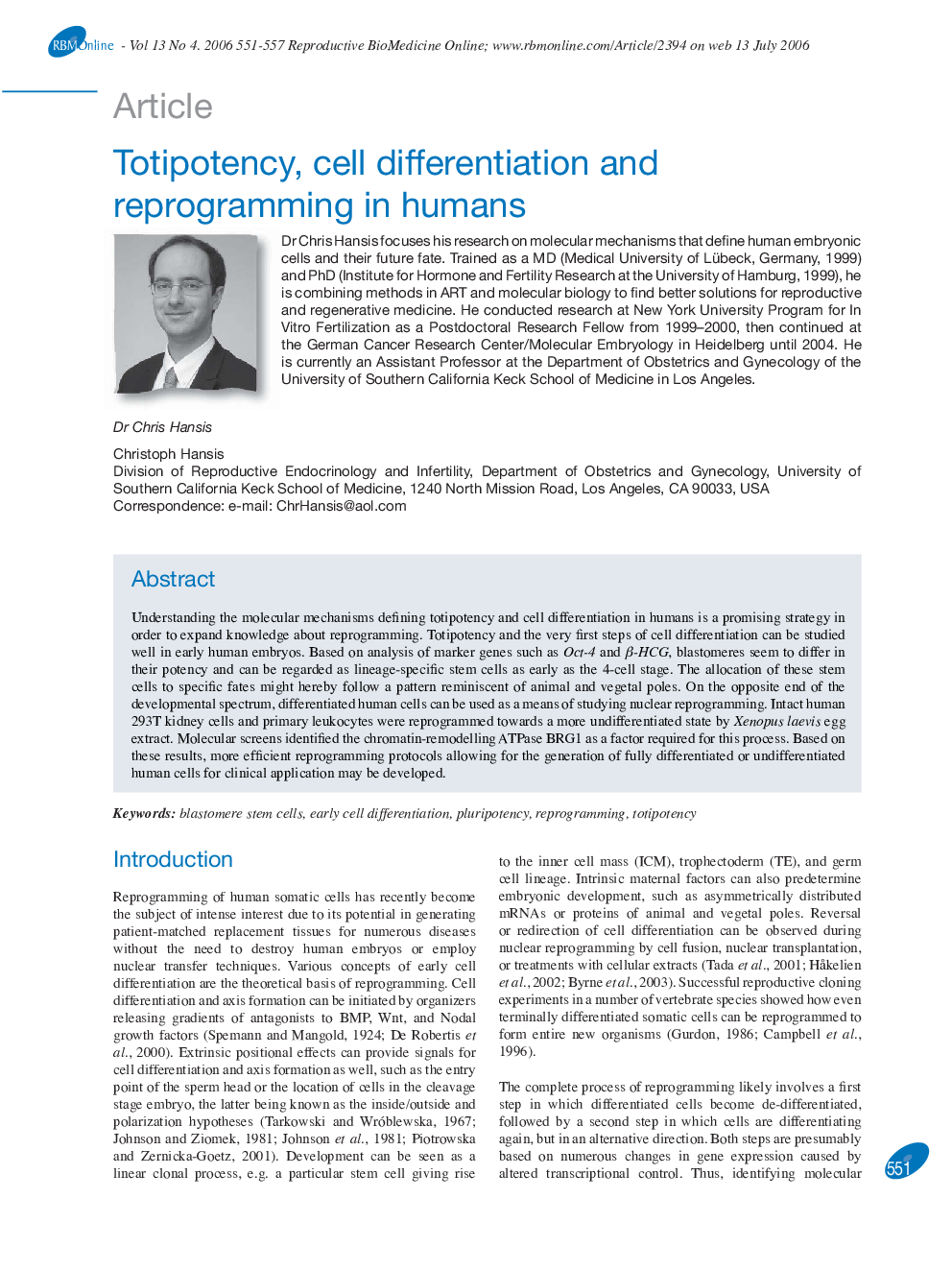| کد مقاله | کد نشریه | سال انتشار | مقاله انگلیسی | نسخه تمام متن |
|---|---|---|---|---|
| 3973444 | 1256854 | 2006 | 7 صفحه PDF | دانلود رایگان |

Understanding the molecular mechanisms defining totipotency and cell differentiation in humans is a promising strategy in order to expand knowledge about reprogramming. Totipotency and the very first steps of cell differentiation can be studied well in early human embryos. Based on analysis of marker genes such as Oct-4 and β-HCG, blastomeres seem to differ in their potency and can be regarded as lineage-specific stem cells as early as the 4-cell stage. The allocation of these stem cells to specific fates might hereby follow a pattern reminiscent of animal and vegetal poles. On the opposite end of the developmental spectrum, differentiated human cells can be used as a means of studying nuclear reprogramming. Intact human 293T kidney cells and primary leukocytes were reprogrammed towards a more undifferentiated state by Xenopus laevis egg extract. Molecular screens identified the chromatin-remodelling ATPase BRG1 as a factor required for this process. Based on these results, more efficient reprogramming protocols allowing for the generation of fully differentiated or undifferentiated human cells for clinical application may be developed.
Journal: Reproductive BioMedicine Online - Volume 13, Issue 4, 2006, Pages 551-557